Celebrating Nurses! Courageous, Kind Caregivers Offer Hope
 Being a nurse at Monarch means many different things to our staff but most of all it encompasses the gift of care, concern and hope to people diagnosed with mental illness and intellectual and developmental disabilities (I/DD).
Being a nurse at Monarch means many different things to our staff but most of all it encompasses the gift of care, concern and hope to people diagnosed with mental illness and intellectual and developmental disabilities (I/DD).
Director of Nursing, Behavioral Health, Chad Lyles, RN, is amazed each day working with staff nurses through Monarch’s behavioral health outpatient clinics across North Carolina. “When you hear the word nursing, you think about caring for someone, building them back up and supporting them on their wellness journey,” he comments. “That is exactly what Monarch nurses strive to do. Our nurses are full of caring. They form the base of the support structure for the people we support.”
Director of Nursing Services, Long-Term Services and Supports, Selina Olomua, MSN, BSN, RN, PMH-BC, believes that nurses have great impact on people served: “Too often in behavioral health, we underestimate the power a kind word, a listening ear, a smile, or the smallest act of caring, all of which have the potential to turn a life around when someone is in a mental health crisis. Our Monarch nurses consistently deliver.”
Nurses Week is celebrated Friday, May 6 through Thursday, May 12 this year, and was originally observed in 1954 in honor of Florence Nightingale and her work as a nurse. To recognize Monarch nurses and the important work that they do, below is a snapshot of six staff members who share insight into what their role means to them.
Keishia Cooper, LPN, Forsyth Behavioral Health Outpatient Clinic
Keishia, who has a son who was diagnosed at an early age with an intellectual disability and attention deficit hyperactivity disorder (ADHD), believes this personal experience helps in her career.
Being a nurse in the mental health field has taught her to be understanding, compassionate and patient. “I learned that mental health issues are prevalent in all walks of life. It can affect your physical, emotional, and social wellbeing. Each individual presents differently and medication is not a fix all solution,” she explains.
Nurses require effective communication skills. “I’ve learned that what may work for someone may not work for everyone else. Everything is not black and white but with many shades of gray in between,” she reveals. “I’ve also learned a listening ear can solve more dilemmas just because people want to be heard.”
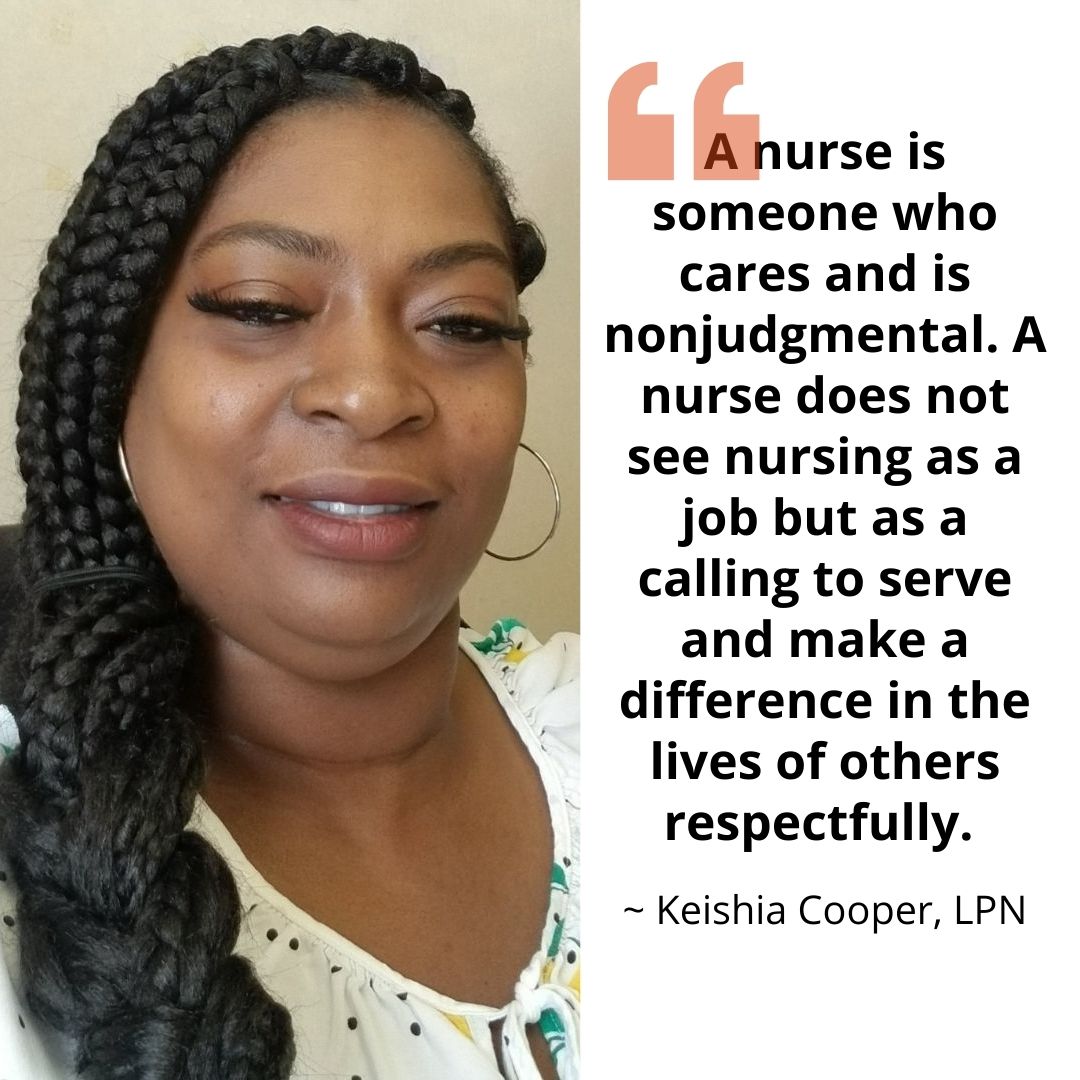
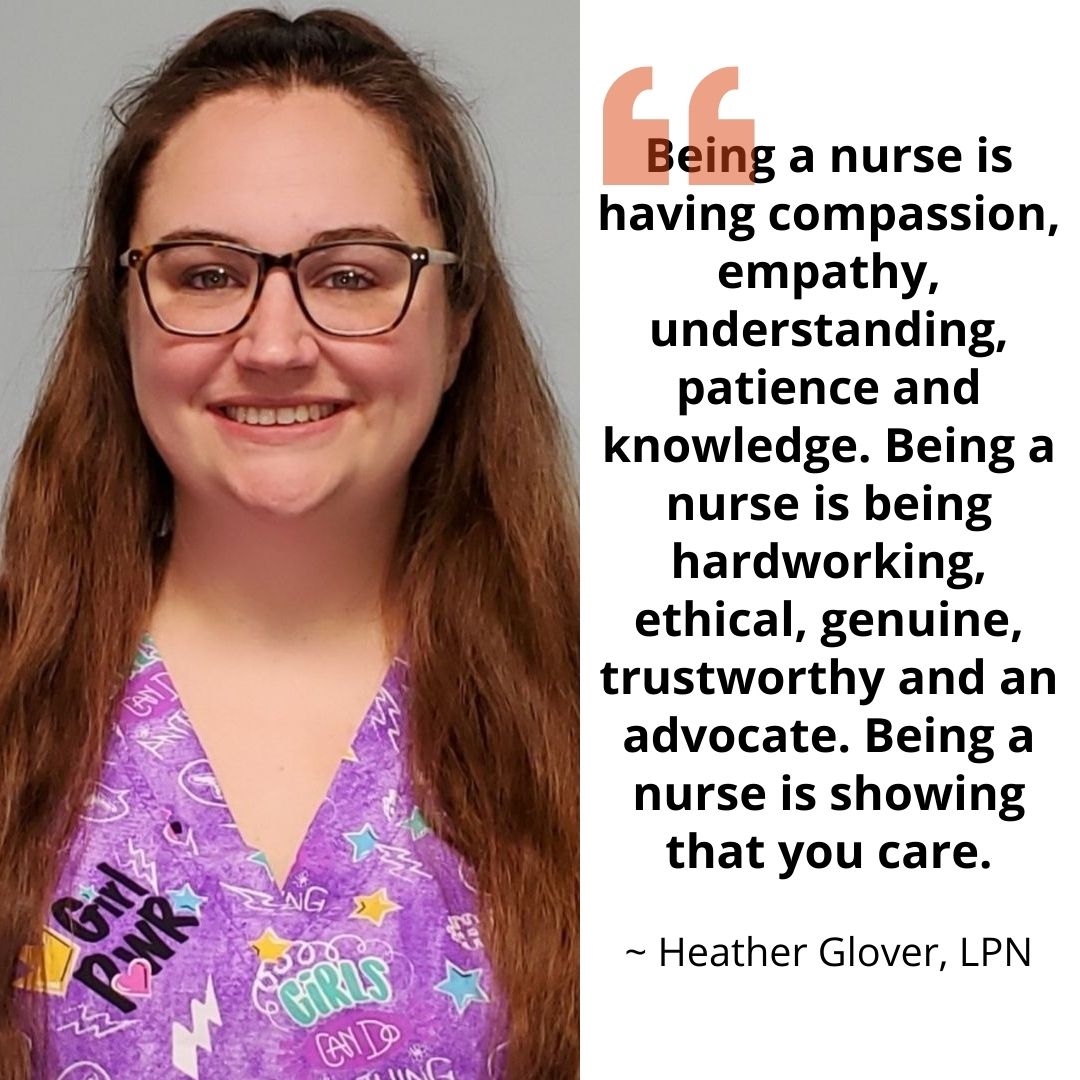
Heather Glover, LPN, Nash Behavioral Health Outpatient Clinic
Heather knew as a young girl that she wanted to be a nurse like her mom and as she got older, it became the only field of study about which she was passionate.
She is responsible for providing injection medication to people supported and notices that at times people may become agitated during an appointment. “Sometimes, the person we support just wants a listening ear or sometimes they are nervous about getting the injection,” Heather observes. “Whatever the cause, allowing the person to vent helps to de-escalate the behavior which allows me to accomplish the task.”
People we support have helped Heather to be more patient. “At times, we can get lost in the hustle and bustle of a fast-paced work environment. We can’t forget that each person we support deserves our undivided attention and shall be given the best quality of care possible,” she says.
Rhaven Cooper, RN, BSN, Lumberton Facility-Based Crisis (FBC) Center
Rhaven works the night shift at Monarch’s Lumberton FBC that serves people with mental illness and substance use disorders. Previously having worked in a hospital setting, Rhaven notes that people supported have taught her “mental health status influences daily living. Individuals in crisis need immediate help to get them through their crisis and sustained support afterwards to minimize future crises.”
Working in the mental health field has increased her communication skills, empathy and interpersonal skills. “Each day I go to work, I know I will be making an impact on someone else’s life. Whether it be large or small, the things I do have direct and indirect effects on the patients, their families, and my co-workers, too. At times, this can be a heavy load to carry but overall it is a blessing,” she says of being a nurse.
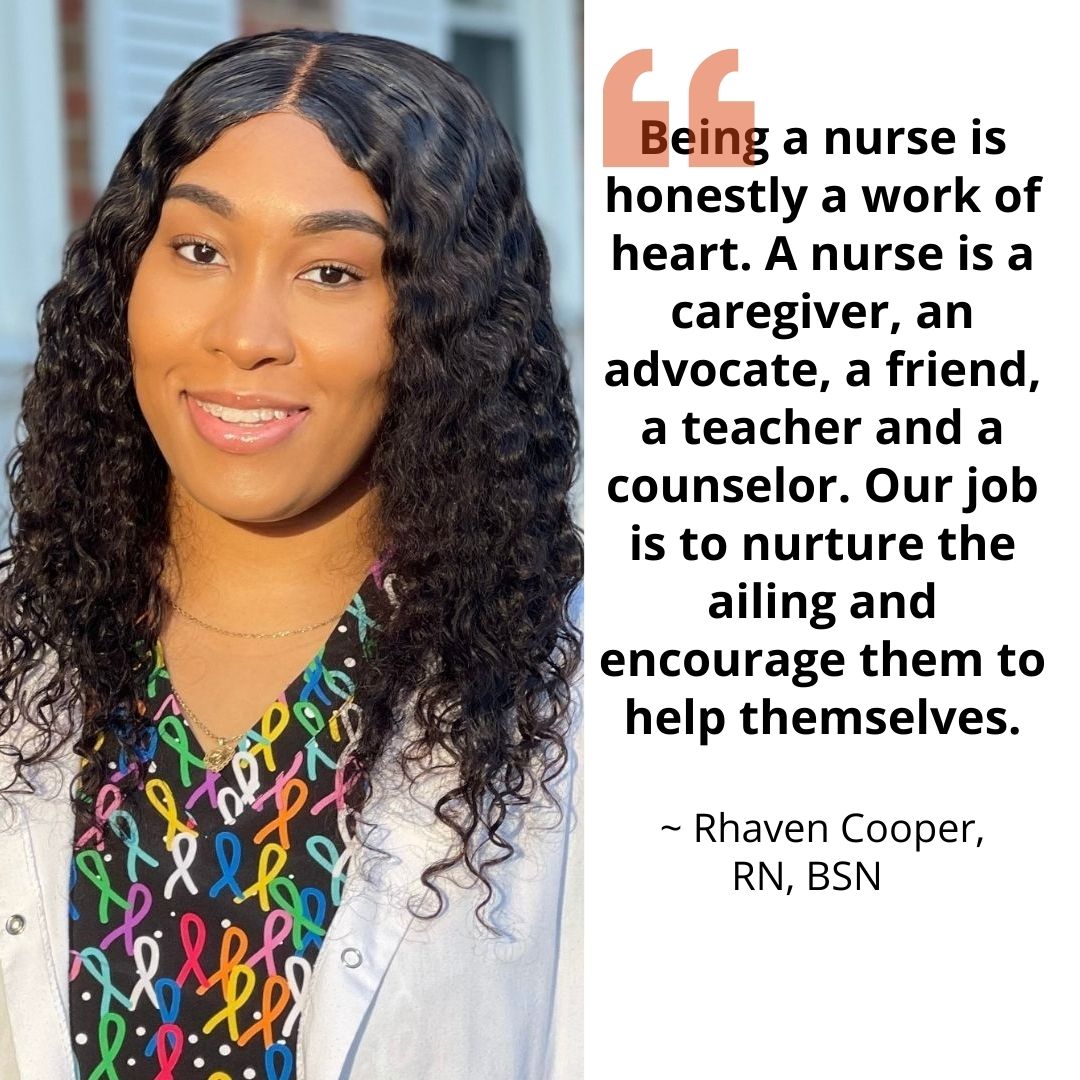
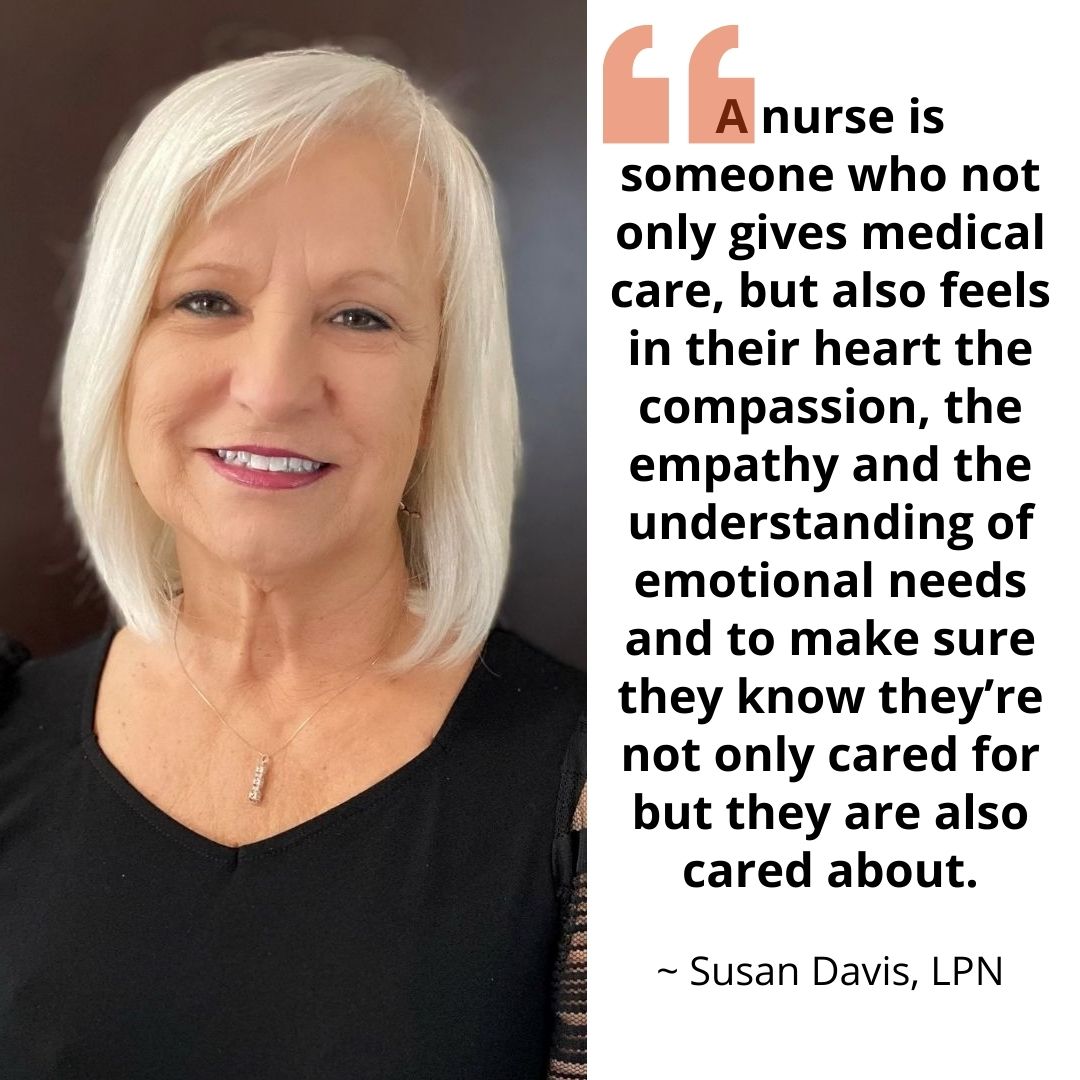
Susan Davis, LPN, Dogwood House Group Home
Susan came to Monarch following 20 years of working in home health care. Her daughter, Cheryl, is a Continual Readiness Coordinator with Monarch’s Performance Improvement team.
Susan, who has a son with a traumatic brain injury residing in a group home (not affiliated with Monarch), feels she can personally and professionally understand the needs of people with mental health diagnoses.
“I do believe because I personally live with my son’s situation every day that I understand more deeply what it’s truly like for the people we support, their families and the caregivers who work with them,” she observes. “I believe it is a way for me to give back and make a positive impact through my own son’s disabilities and it has made me an all-around stronger nurse.”
LaTina McGee, RN-BSN, MHA, CRRN, SECU Youth Crisis Center (YCC)
LaTina, who works the night shift at the YCC, initially entered the medical field as a certified nurse assistant, returning to receive her nursing degree after 10 years.
She has learned a variety of lessons as a nurse but the most important is to respect life, appreciate everyone’s differences and find joy as a nurse: “Mental health is not the easiest field to work in but it is one of the most rewarding especially when I see individuals succeed in making better choices in their lives.”
An important part of her role is to not only help educate the person supported but their families, especially when the person is ready to return home. “Many times we receive telephone calls from families who just want someone to listen. Law enforcement and other agencies call for assistance even if the YCC is not the appropriate setting for the child. I always offer resources so they can receive the help they need,” she says.
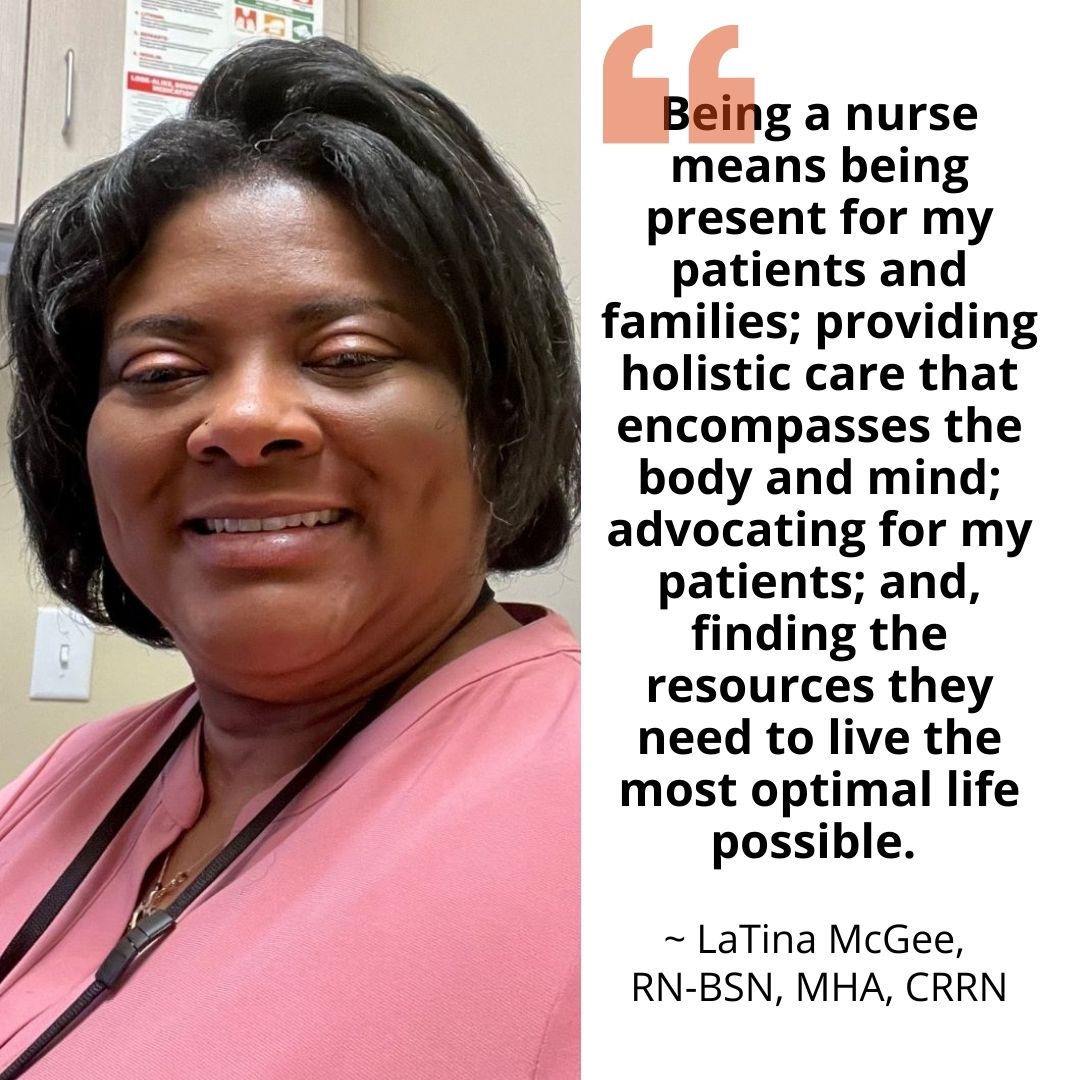
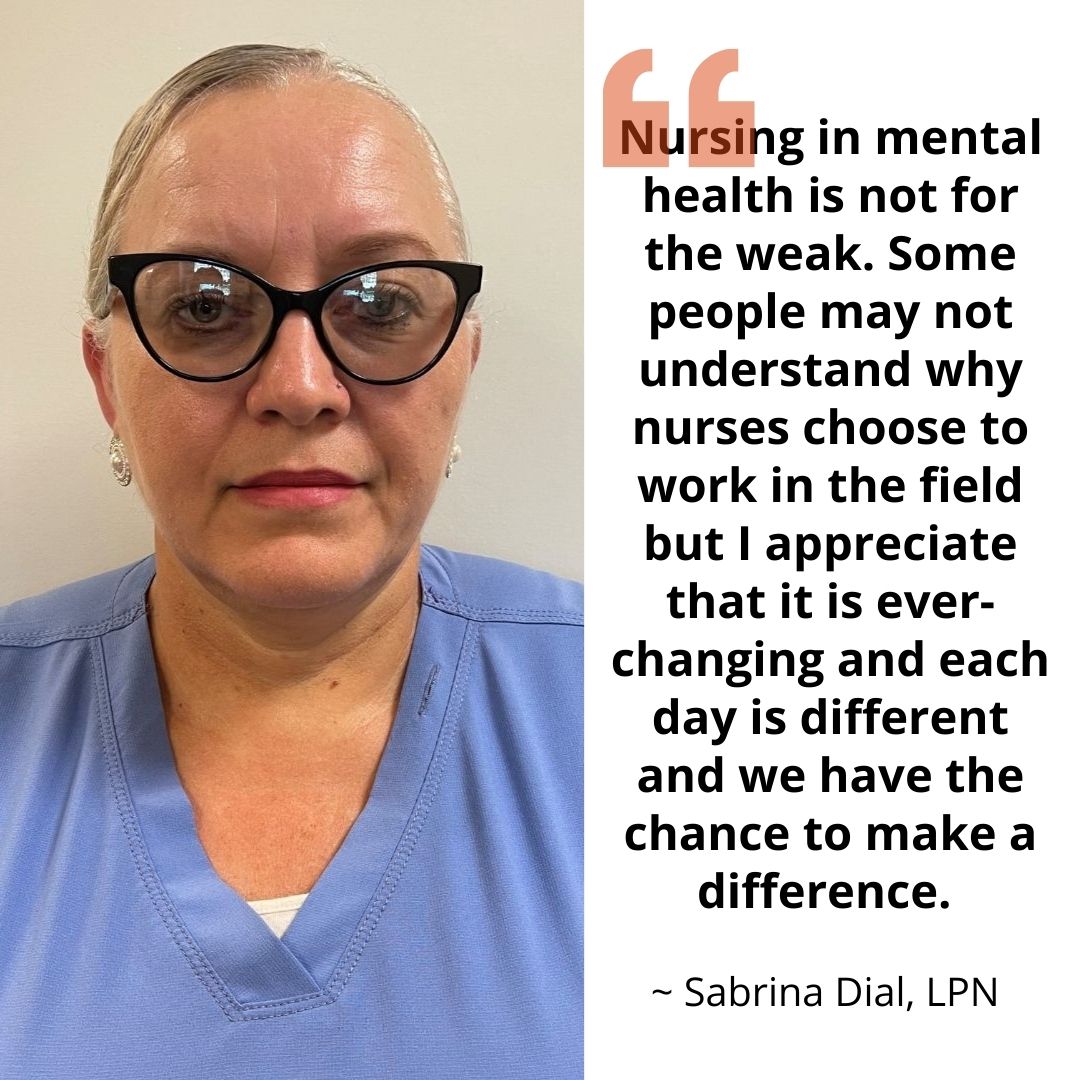
Sabrina Dial, LPN, Robeson Behavioral Health Outpatient Clinic
Sabrina, who has worked at Monarch for five years, studied to become a nurse later in life with the motivation of a financially stable career for her five children. Her role has taught her many lessons including how to never judge another person not knowing the struggles they are facing such as homelessness or loss of employment.
Sabrina is grateful she chose to practice nursing in the mental health field. “It makes me very happy to work in mental health, it has been my calling for a long time and I could never see myself doing anything else. It makes my heart happy,” she says. “Whether it is mental illness, substance use disorder or a disability, this is still a human being who is someone’s child, daughter, son, father or mother and they deserve to be treated with respect.”
“Many people supported are the most caring and giving individuals that one may meet. As a nurse, I am thankful for the experience of working in such a great field,” she says.
Posted on: Thursday April 28, 2022

